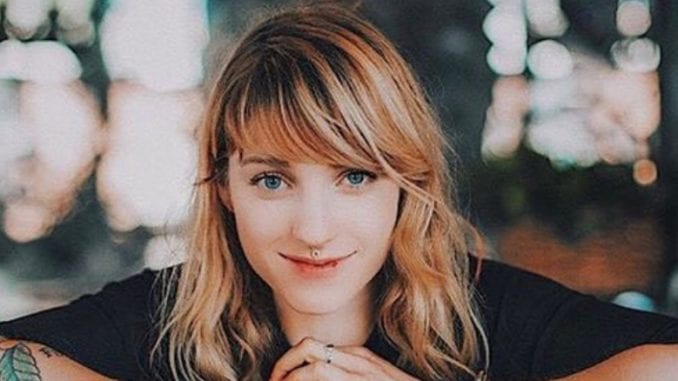
Lindsey Pittman is the co-founder of Trade and Lore, a coffee shop in Asheville, N.C., where community and inclusion are pivotal.
BY ANGIE THOMPSON
SPECIAL TO BARISTA MAGAZINE ONLINE
Photos courtesy of Lindsey Pittman
Lindsey Pittman is the co-founder of Trade and Lore, a coffee shop in Asheville, N.C. A project born of the ashes of the Waking Life scandal, Trade and Lore has established its own presence serving the local community. For Lindsey, being a community leader involves being conscious, caring, and listening at all times. In this interview, Lindsey talks about how Trade and Lore started, travel, and what projects she looks forward to working on in the future.
Angie Thompson: Let’s start where things start. Do you recall a specific moment when you first connected with coffee?
Lindsey Pittman: I grew up in a family that drinks coffee (bad coffee), so I didn’t initially realize how “good” coffee can be until well into my career. My first job was at my uncle’s coffee shop in Texas. I read the (apparently never before opened) history and geography section of the training manual. There in those plastic sleeves I learned that coffee is the seed of a cherry and it grows near the equator. Prior to that, I thought of coffee as hot coffee mix (just add water). I didn’t have really good coffee until I started working with multiple roasters at The Daily Press, and my first spectacular coffee moment was at the Big Eastern with a Panamanian coffee brewed by Alex LittleJohn and James Tooill.
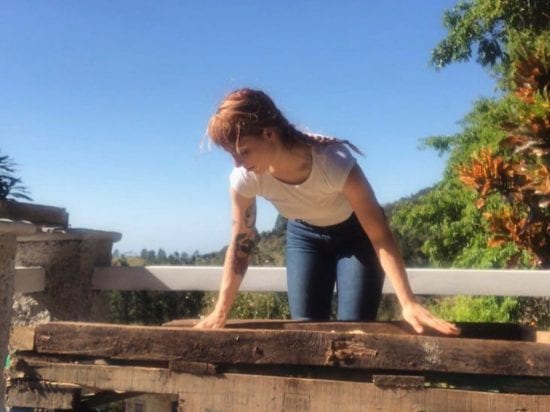
AT: Your shop, Trade and Lore, which you own with your business partner Sarah Winkler, will be three years old in late March. How did you and Sarah arrive at your partnership, and how has your collaboration shaped the values and vision of your shop?
LP: The best way to explain the beginnings of Trade and Lore Asheville would be to listen to the first-ever Filter Stories podcast. Ours is one hell of a story, though I often lose consciousness of that fact for more pressing, if not more infuriating, concerns. To be the most accurate, I would say strong identities and a fierce determination for justice brought us together. Our different personalities have shaped our alike goals for resourceful, inventive menus, and a café unthreatening to all but the discriminatory.
AT: Trade and Lore has a reputation of inclusivity and a focus on community. What has it taken to develop that culture within your business, and how do you and your team maintain it?
LP: Thank you! It isn’t easy to accommodate and influence the spectrum of personalities as a person, let alone as a leader/business owner. We have to consider our priorities on community interaction, and the priorities of our team. We then do our best to make the greatest viable impact while realizing that some individuals don’t recognize the difference between foes and allies. Trying to “do good,” but not be too hard on ourselves, requires a lot of listening, asking questions, and prioritizing. For example, my answer to this question would be better with help from our crew.
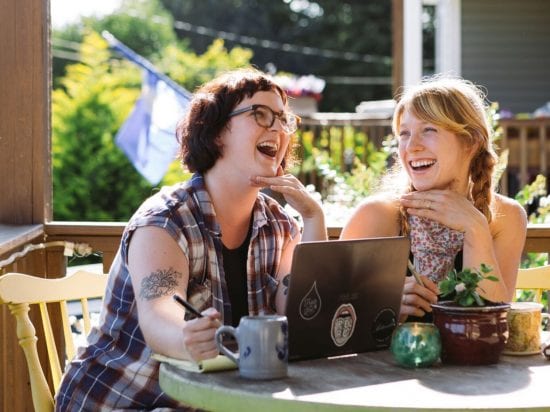
AT: Trade and Lore isn’t your first venture into business ownership, nor is it your only current project. What pulled you into coffee shop ownership to begin with?
LP: It was the desire to create deliberately, without reserve or restraint. I wanted to seize opportunities that I felt other café owners were dismissing—like educational opportunities, coffee cocktails, guest baristas/roasters, food pairings—all now commonplace practices for cafés, but at the time very difficult to find in our region. I, perhaps naively, thought that café ownership would be easy for me because I wanted it badly enough. I am proud of it though. We own this business. We have suffered, learned, and grown, and it is ours.
AT: What have your other projects taught you that you carry with you at Trade and Lore?
LP: Work with people who share your intentions on the project—it’s not a quick money-making venture if done honorably … work with passionate people. Be honest about your value (don’t give your hard-won knowledge away to everyone for free). Try to avoid assumptions or abrasiveness in yourself and in others. If something feels wrong, try to be tactful in your discussions. Prioritize projects—don’t take on so much that you neglect established projects. Don’t be too hard on yourself and know your bandwidth, be willing to ask for help! Often times baristas are eager to help and prove their value, and you ignore that at your own demise. Have a great attorney.
AT: Travel seems to have amplified your curiosity and learning when it comes to coffee. In 2017, you took an origin trip to Panama. Tell us about that trip. What did you take away from that experience that has been essential to your professional approach to coffee?
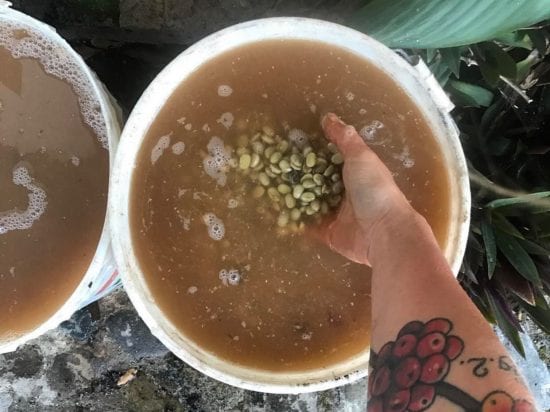
LP: Absolutely! Coffee- and tea-related travel and farm work has always been a goal for me. My good friend, Alexis Batista, is Panamanian, and he decided not long before I opened the first shop to turn his previously wine-focused eyes on coffee production. I volunteered my time and labor. It was a fantastic trip and has been a great journey with Dos Ruedas. Alexis works his ass off, and I look forward to our businesses growing alongside one another. I want my daughter to see the importance of farming, soil, and production, so we’re going to try to see how her little hands can help next trip, haha.
AT: Where are you going next?
LP: Panama! I like the people, the coffee, and the land, so I want to build on those relationships … then maybe Japan for a taste of the coffee culture.
AT: You recently became a mother. How has new parenthood changed and surprised you in general, and how has it affected your relationship to your life’s work?
LP: l love it! I was full of skepticism about parenthood for myself for my whole life, but now that I am what I swore I’d never be, I’m ridiculously glad to have her in my life and to be a momma. She is my work buddy, she works shifts with me and goes to pop-ups … I now need breaks to take care of her, where before I’d plow through all day neglecting myself. I find I quite enjoy not neglecting myself anymore, and I’m grateful to her for the way she delicately informs me when she needs something—informs me and the whole café. I do find that my priorities are much more for stability and growth of the business as opposed to expansion and risk taking … but who am I kidding, I’ll still have a (hopefully) healthy bit of both.
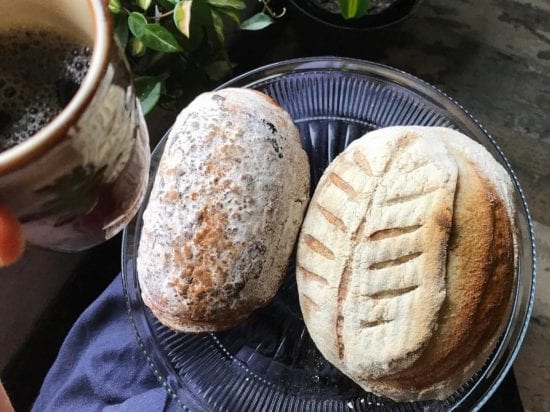
AT: When I think of you, I think of a holistic approach to coffee, one that pulls from wider circles of interest made evident by your Instagram account—baking, drawing, biology. Talk a little about how all of these interests come together in your work.
LP: I’m glad that it comes across as holistic and not distractible! I just love figuring things out! “Somewhere something incredible is waiting to be known,” (said by my hero, Carl Sagan), and I try to live by that optimistic view of the world. Universally, every time I feel like I’m getting the hang of something, I realize how much more there is to learn! I have been in the coffee industry for well over a decade now and realize there is just so much more for me to learn about all things coffee. My interests flit from these different angles trying to fill in a picture or map that seems impossible to solve. I love it.

